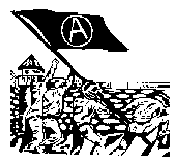The Socialist Party say that before production can be carried out in ecologically-acceptable ways capitalism must go. Production for profit and the uncontrollable drive to accumulate more and more capital mean that capitalism is constitutionally incapable of taking ecological considerations properly into account—and that it is futile to try to make it do so.
If we are going to organise production in an ecologically sound way then we must first be in a position to control production, but we can’t control production unless we own and control the means of production. So, a socialist society of common ownership and democratic control is the only framework within which the aims of environmentalists can be realised. So, environmental activists should be socialist. Yet too often they are advocates of the idea of an idyllic market economy in which people exchange goods for use—what Marx called “petty commodity production"—but, as Marx demonstrated in Capital, petty commodity production led, logically and historically, to capitalist commodity production where the aim of production and exchange is no longer use but becomes to make and realise profits. Market exchange leads to the domination of production and society by market forces and, if we went back to the simple market system without profit-making envisaged by many Greens, the whole process of development towards a capitalist market economy would start all over again.
The answer is to establish the common ownership and democratic control of productive resources. Then the whole concept of the market, of buying and selling, becomes meaningless. Where productive resources are commonly owned and democratically controlled so will what is produced, and the problem will not be to sell it— how can you sell to people what is already theirs? —but how to arrange for people to have access to it on an equal basis. In our view, it wouldn't be very long before the principle “from each according to their abilities, to each according to their needs” could apply. That's socialism—real socialism, not the milk-and-water market exchange economy advocated by activists who believe they have radical proposals and it’s what greens if they are to be logical and consistent, should be working for.
Transforming raw materials into some commodity that can be sold, labour adds value to them; this value is the source of both the wages they are paid and the profits of their employer. Profits, in other words, are produced by labour. So said Adam Smith, the apostle of free-market capitalism. So the labour theory of value has a pedigree which ought to be unimpeachable for defenders of capitalism. It has to be said, however, that Adam Smith and his successors, precisely because they were supporters of capitalism, got themselves into all sorts of contradictions. They wanted to justify the capitalist profit system as the best possible, indeed as the only natural economic system, yet the labour theory of value which they accepted out of intellectual honesty implied that profits were a deduction from what labour produced and that capitalism was therefore based on the robbery of the producers.
There were only two ways out of this contradiction. One was to abandon the labour theory of value. The other was to accept that the capitalist system was based on the exploitation of labour and should, therefore, be abolished. Supporters of capitalism chose the first course so that by the middle of the last century the labour theory of value had become “discredited” in respectable circles. Supporters of the workers chose the second course. But they didn't quite get it right. They argued that the alternative to capitalism was a system that would ensure that every individual worker got the “full product of their labour”; this was to be done by pricing goods according to the amount of labour-time required to produce them and giving the workers who produced them a quantity of labour notes that would enable them to acquire the full labour-time equivalent of what they had produced. Under this scheme there would be no profit; all that was produced would go, in one form or another, to the producers. Marx is on record as attacking the idea that each worker could be ensured the “undiminished proceeds” of their labour. A whole section of his Critique of the Gotha Programme adopted by the German Social Democrats in 1875 was devoted to exposing the absurdity of the idea that each individual worker could be given the “full product” of his or her contribution to the co-operative labour of the whole labour force (even supposing this could be measured). In a socialist society, deductions from this would have to be made for such things as the resources to be devoted to the replacement and expansion of the means of production, the general administration of society and the maintenance of those unable to work because of youth, old age, sickness or disability. The only context, in fact, in which the phrases “full fruits" or “full product” or "undiminished proceeds” make sense is that of the whole community enjoying the full fruits of the collective co-operative labour of its working members; which in practice means allowing every member of the community an equal right to satisfy their own personally-decided needs.
Wealth is not created by market forces; at most it is only distributed by them — unequally and to the benefit of those who own the means of production.




















